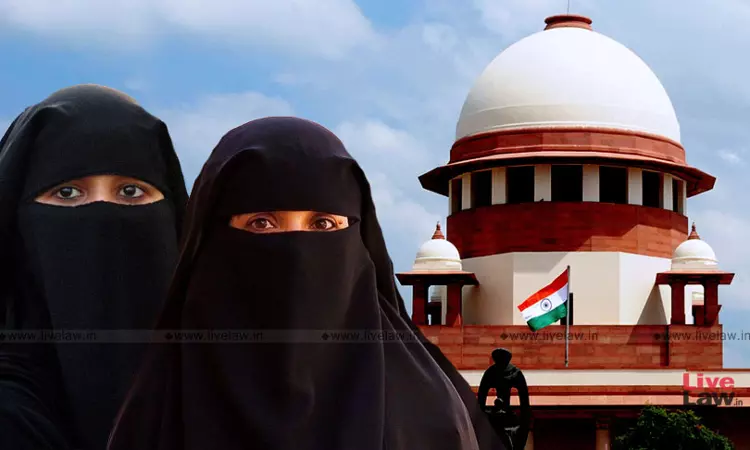Ruling Clarifies Maintenance Rights Under Section 125 CrPC, Ensuring Financial Security and Gender Equality
In a historic decision, the Supreme Court of India has ruled that divorced Muslim women are entitled to alimony, clarifying long-standing confusion surrounding their maintenance rights. The judgment, hailed as a landmark ruling, affirms that divorced Muslim women should receive maintenance under Section 125 of the Code of Criminal Procedure (CrPC).
Historical Context and Legal Background
The issue of maintenance for divorced Muslim women has been contentious since the enactment of a specific law during Rajiv Gandhi's tenure. The 1986 Muslim Women (Protection of Rights on Divorce) Act created ambiguity about whether Section 125 CrPC, which mandates maintenance for wives, children, and parents, applied to Muslim women. The Supreme Court's recent decision provides definitive clarity.
The Case at Hand
The case reached the Supreme Court when a Muslim man, Mohammad Abdul Samad, petitioned against the orders of the lower and High Courts mandating him to provide maintenance to his divorced wife. The family court initially ruled that Samad should pay Rs. 20,000 per month to his wife, a decision later upheld but reduced to Rs. 10,000 per month by the Telangana High Court. Dissatisfied, Samad sought relief from the Supreme Court.
Supreme Court's Judgment
A two-judge bench comprising Justice BV Nagarathna and Justice George Masi delivered the judgment. Despite issuing separate opinions, both justices concluded that divorced Muslim women are entitled to maintenance. The court emphasized that Section 125 CrPC applies to all women, irrespective of religion, ensuring that divorced women receive continuous support until they remarry or become self-sufficient.
Implications of the Ruling
The Supreme Court's decision reinforces the principles established in the 1985 Shah Bano case, which affirmed that Section 125 CrPC applies to all individuals, regardless of religion. Although the 1986 Act initially overturned this ruling, the recent judgment finalizes the matter, ensuring that divorced Muslim women receive maintenance as a fundamental right.
Reaction and Significance
National Commission for Women Chairperson, Rekha Sharma, welcomed the judgment, highlighting its importance in reinforcing gender equality and financial security for women. The court's ruling transcends religious boundaries, recognizing the significant contributions and sacrifices of homemakers.
This landmark decision not only upholds the legal rights of divorced Muslim women but also strengthens the principles of equality and justice in India.
JOIN US FOR MORE UPDATES:-
WHATSAPP CHANNEL -
https://chat.whatsapp.com/KFqEQu2XzFa8RvSg42N9rM
TELEGRAM CHANNEL - https://t.me/learnwithsakshi03
Linkedin account -
Instagram -
https://www.instagram.com/_sakshinchaos_?igsh=MTRobXA5eG9jY3AzMw%3D%3D&utm_source=qr
FOR ANY QUERY, EMAIL US ON - hustlinglearning@gmail.com

Post a Comment